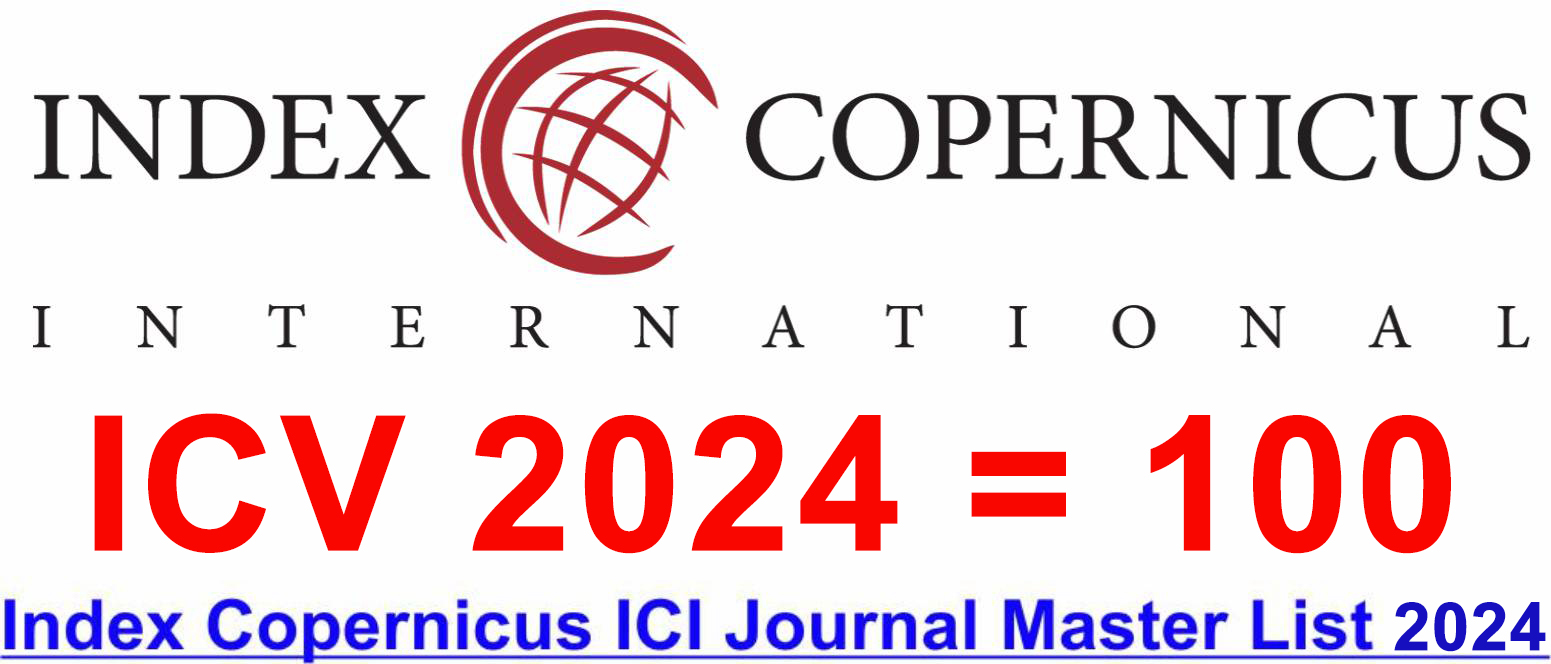Corporate Governance and Financial Performance in Saudi Arabian Listed Companies: A Integrative Literature Review
DOI:
https://doi.org/10.46977/apjmt.2023.v04i01.004Keywords:
Corporate Governance, Financial Performance, Board Size, Multiple Directorships, Interlocked DirectorshipsAbstract
This research investigates the effect of corporate governance factors, including board size and multiple directorships, on firms' financial performance. Utilizing agency and stakeholder theories as its basis for analysis, this investigation seeks to understand board size's effect on decision-making efficiency as well as organizational efficiency. Additionally, this study investigates how interlocked directorships affect firm performance. Studies examining existing literature reveal mixed findings regarding the correlation between board size and financial performance, with some studies finding positive effects while others showing adverse results. Furthermore, the busyness hypothesis states that multiple directorships may hinder firm performance due to reduced management supervision and higher agency costs. This paper contributes significantly towards the understanding of corporate governance's influence on firm performance by offering insight into this complex relationship while serving as a basis for further study in this area.
Downloads
References
Adams, R. B., & Ferreira, D. (2009). Women in the boardroom and their impact on governance and performance. Journal of Financial Economics, 94(2), 291-309. https://doi.org/10.1016/j.jfineco.2008.10.007
Afrifa, G. A., & Tauringana, V. (2015). Corporate governance and performance of UK listed small and medium enterprises. Corporate Governance. https://doi.org/10.1108/CG-03-2015-0029
Al Abbas, M. (2009). The Relationship between Corporate Governance and Financial Performance in Saudi Arabia. International Journal of Economics, Commerce and Management, 1(1), 1-20.
Al-Adeem, K. R., & Al-Khonain, S. (2020). Corporate Governance and Financial Reporting Quality Preliminary Evidence from Saudi Arabia. Financial Markets, Institutions and Risks, 4(1). http://doi.org/10.21272/fmir.4(1).109-116.2020
Albassam, W. (2014). Corporate Governance, Voluntary Disclosure and Financial Performance: An Empirical Analysis of Saudi Listed Firms Using a Mixed-Methods Research Design(Doctoral dissertation, University of Glasgow). https://ethos.bl.uk/OrderDetails.do?uin=uk.bl.ethos.616431
Alchian, A. A., & Demsetz, H. (1972). Production, Information Costs, and Economic Organization. The American Economic Review, 62(5), 777–795. http://www.jstor.org/stable/1815199
Al-Faryan, M. A. S. (2019). Corporate governance in Saudi Arabia: An overview of its evolution and recent trends. Al-Faryan, MAS (2020). Corporate Governance in Saudi Arabia: An Overview of its Evolution and Recent Trends. Risk Governance and Control: Financial Markets & Institutions, 10(1), 23-36. https://doi.org/10.22495/rgcv10i1p2
Almaqtari, F. A., Hashed, A. A., & Shamim, M. (2021). Impact of corporate governance mechanism on IFRS adoption: A comparative study of Saudi Arabia, Oman, and the United Arab Emirates. Heliyon, 7(1), e05848. https://doi.org/10.1016/j.heliyon.2020.e05848
Al-Matari, E. M., Al-Swidi, A. K., & Fadzil, F. H. B. (2014). The measurements of firm performance's dimensions. Asian Journal of Finance & Accounting, 6(1), 24. http://dx.doi.org/10.5296/ajfa.v6i1.4761
Al-Matari, Y. A., Al-Swidi, A. K., & Fadzil, F. H. (2012). Corporate governance and performance of Saudi Arabia listed companies. British Journal of Arts and Social Sciences, 9(1), 1-30. https://repo.uum.edu.my/id/eprint/15435
Al-Nodel, A., & Hussainey, K. (2010). Corporate governance and financing decisions by Saudi companies?. Journal of Modern Accounting and Auditing, 6(8), 1-14. http://www.davidpublishing.com/show.html?8700
Bagais, O., & Aljaaidi, K. (2020). Corporate governance attributes and firm performance in Saudi Arabia. Accounting, 6(6), 923-930. http://dx.doi.org/10.5267/j.ac.2020.8.005
Bhagat, S., & Black, B. (2001). The non-correlation between board independence and long-term firm performance. J. CorP. l., 27, 231. https://heinonline.org/HOL/LandingPage?handle=hein.journals/jcorl27&div=18&id=&page=
Buallay, A., Hamdan, A., & Zureigat, Q. (2017). Corporate governance and firm performance: evidence from Saudi Arabia. Australasian Accounting, Business and Finance Journal, 11(1), 78-98. http://dx.doi.org/10.14453/aabfj.v11i1.6
Capital Market Authority (CMA). (2017). Corporate Governance Regulations in the Kingdom of Saudi Arabia. CMA.
Carter, D. A., Simkins, B. J., & Simpson, W. G. (2003). Corporate governance, board diversity, and firm value. Financial Review, 38(1), 33-53.
Cheng, S. (2008). Board size and the variability of corporate performance. Journal of Financial Economics, 87(1), 157-176. https://doi.org/10.1016/j.jfineco.2006.10.006
Coles, J. L., Daniel, N. D., & Naveen, L. (2008). Boards: Does one size fit all?. Journal of Financial Economics, 87(2), 329-356. https://doi.org/10.1016/j.jfineco.2006.08.008
Dahya, J., McConnell, J. J., & Travlos, N. G. (2002). The Cadbury committee, corporate performance, and top management turnover. The Journal of Finance, 57(1), 461-483. https://doi.org/10.1111/1540-6261.00428
Daily, C. M., Dalton, D. R., & Rajagopalan, N. (2003). Governance through ownership: Centuries of practice, decades of research. Academy of Management Journal, 46(2), 151-158. https://doi.org/10.5465/30040611
Dalton, D. R., Daily, C. M., Johnson, J. L., & Ellstrand, A. E. (1999). Number of directors and financial performance: A meta-analysis. Academy of Management Journal, 42(6), 674-686. https://doi.org/10.5465/256988
Davis, J. H., Schoorman, F. D., & Donaldson, L. (1997). Toward a stewardship theory of management. Academy of Management Review, 22(1), 20-47. https://doi.org/10.5465/amr.1997.9707180258
Eisenberg, T., Sundgren, S., & Wells, M. T. (1998). Larger board size and decreasing firm value in small firms. Journal of Financial Economics, 48(1), 35-54. https://doi.org/10.1016/S0304-405X(98)00003-8
Ezzine, H. (2011). A Cross Saudi Firm Analysis of the Impact of Corporate Governance on the Stock Price Performance During the Recent Financial Crisis. SABIC Chair for IFMS.
Fama, E. F., & Jensen, M. C. (1983). Separation of ownership and control. The Journal of Law and Economics, 26(2), 301-325. https://doi.org/10.1086/467037
Ferreira, D., Ferreira, M. A., & Raposo, C. C. (2011). Board structure and price informativeness. Journal of Financial Economics, 99(3), 523-545. https://doi.org/10.1016/j.jfineco.2010.10.007
Fich, E. M., & Shivdasani, A. (2006). Are busy boards effective monitors?. The Journal of Finance, 61(2), 689-724. https://doi.org/10.1111/j.1540-6261.2006.00852.x
Filipovic, D., Podrug, N., & Kristo, M. (2010). Assessment of relations between stewardship and stakeholder theory. Annals of DAAAM & Proceedings.
Freeman, R. E. (2010). Strategic Management: A Stakeholder Approach. Cambridge university press.
Guest, P. M. (2009). The impact of board size on firm performance: evidence from the UK. The European Journal of Finance, 15(4), 385-404. https://doi.org/10.1080/13518470802466121
Hamdan, A. M., Buallay, A. M., & Alareeni, B. A. (2017). The moderating role of corporate governance on the relationship between intellectual capital efficiency and firm's performance: evidence from Saudi Arabia. International Journal of Learning and Intellectual Capital, 14(4), 295-318. https://doi.org/10.1504/IJLIC.2017.087377
Hernandez, M. (2012). Toward an understanding of the psychology of stewardship. Academy of Management Review, 37(2), 172-193. https://doi.org/10.5465/amr.2010.0363
Hillman, A. J., & Dalziel, T. (2003). Boards of directors and firm performance: Integrating agency and resource dependence perspectives. Academy of Management Review, 28(3), 383-396. https://doi.org/10.5465/amr.2003.10196729
Hsu, H. H., & Wu, C. Y. H. (2014). Board composition, grey directors and corporate failure in the UK. The British Accounting Review, 46(3), 215-227. https://doi.org/10.1016/j.bar.2013.12.002
Ibrahim, A., Habbash, M., & Hussainey, K. (2019). Corporate governance and risk disclosure: evidence from Saudi Arabia. International Journal of Accounting, Auditing and Performance Evaluation, 15(1), 89-111. https://doi.org/10.1504/IJAAPE.2019.096748
Isa, M. A., & Muhammad, S. (2015). The impact of board characteristics on corporate social responsibility disclosure: Evidence from Nigerian food product firms. International Journal of Management Science and Business Administration, 1(12), 34-45. https://doi.org/10.18775/ijmsba.1849-5664-5419.2014.112.1004
Jackling, B., & Johl, S. (2009). Board structure and firm performance: Evidence from India's top companies. Corporate Governance: An International Review, 17(4), 492-509. https://doi.org/10.1111/j.1467-8683.2009.00760.x
Jensen, M. C. (1986). Agency Costs of Free Cash Flow, Corporate Finance, and Takeovers. The American Economic Review, 76(2), 323–329. http://www.jstor.org/stable/1818789
Jensen, M. C., & Meckling, W. H. (1976). Theory of the firm: Managerial behavior, agency costs and ownership structure. Journal of Financial Economics, 3(4), 305-360. https://doi.org/10.1016/0304-405X(76)90026-X
Jo, H., & Harjoto, M. A. (2011). Corporate governance and firm value: The impact of corporate social responsibility. Journal of Business Ethics, 103, 351-383. https://doi.org/10.1007/s10551-011-0869-y
Joecks, J., Pull, K., & Vetter, K. (2013). Gender diversity in the boardroom and firm performance: What exactly constitutes a “critical mass?”. Journal of Business Ethics, 118, 61-72. https://doi.org/10.1007/s10551-012-1553-6
Julizaerma, M. K., & Sori, Z. M. (2012). Gender diversity in the boardroom and firm performance of Malaysian public listed companies. Procedia-Social and Behavioral Sciences, 65, 1077-1085. https://doi.org/10.1016/j.sbspro.2012.11.374
Kaczmarek, S. (2017). Rethinking board diversity with the behavioural theory of corporate governance: opportunities and challenges for advances in theorising. Journal of Management & Governance, 21(4), 879-906. https://doi.org/10.1007/s10997-016-9362-4
Khanifah, K., Hardiningsih, P., Darmaryantiko, A., Iryantik, I., & Udin, U. D. I. N. (2020). The effect of corporate governance disclosure on banking performance: Empirical evidence from Iran, Saudi Arabia and Malaysia. The Journal of Asian Finance, Economics and Business, 7(3), 41-51. https://oak.go.kr/central/journallist/journaldetail.do?article_seq=23404
Klein, A. (2002). Audit committee, board of director characteristics, and earnings management. Journal of Accounting and Economics, 33(3), 375-400. https://doi.org/10.1016/S0165-4101(02)00059-9
Lan, L. L., & Heracleous, L. (2010). Rethinking agency theory: The view from law. Academy of Management Review, 35(2), 294-314. https://doi.org/10.5465/amr.35.2.zok294
Larcker, D., & Tayan, B. (2015). Corporate Governance Matters: A Closer Look at Organizational Choices and their Consequences. Pearson education. https://ptgmedia.pearsoncmg.com/images/9780136660026/samplepages/9780136660026_Sample.pdf
Malik, M., Wan, D., Ahmad, M. I., Naseem, M. A., & Rehman, R. U. (2014). Role of board size in corporate governance and firm performance applying Pareto approach, is it cultural phenomena?. Journal of Applied Business Research (JABR), (5), 1395-1406.
Mangena, M., & Tauringana, V. (2007). Disclosure, corporate governance and foreign share ownership on the Zimbabwe stock exchange. Journal of International Financial Management & Accounting, 18(2), 53-85. https://doi.org/10.1111/j.1467-646X.2007.01008.x
Marai, A., Elghariani, O., & Pavlović, V. (2017). Practice and effectiveness of internal corporate governance mechanisms in Saudi Arabia stock market: A review of empirical evidence. Megatrend revija, 14(1), 63-82. https://doi.org/10.5937/MegRev1701063M
Mashayekhi, B., & Bazaz, M. S. (2008). Corporate governance and firm performance in Iran. Journal of Contemporary Accounting & Economics, 4(2), 156-172. https://doi.org/10.1016/S1815-5669(10)70033-3
Mitnick, B. M. (2015). Agency theory. Wiley Encyclopedia of Management, 1-6. https://doi.org/10.1002/9781118785317.weom020097
Muller-Kahle, M. I., Wang, L., & Wu, J. (2014). Board structure: An empirical study of firms in Anglo-American governance environments. Managerial Finance, 40(7), 681-699. https://doi.org/10.1108/MF-04-2013-0102
Muniandy, B., & Hillier, J. (2015). Board independence, investment opportunity set and performance of South African firms. Pacific-Basin Finance Journal, 35, 108-124. https://doi.org/10.1016/j.pacfin.2014.11.003
Nielsen, B. B., & Nielsen, S. (2011). The role of top management team international orientation in international strategic decision-making: The choice of foreign entry mode. Journal of World Business, 46(2), 185-193. https://doi.org/10.1016/j.jwb.2010.05.003
OECD. (2004). OECD Principles of Corporate Governance. Organization for Economic Cooperation and Development. https://www.oecd.org/corporate/ca/corporategovernanceprinciples/31557724.pdf
Osazevbaru, H. O. (2021). Conservative Business Strategy as Moderator of Board Independence and Corporate Performance Nexus in Nigerian Financial Companies. Asian Economic and Financial Review, 11(6), 446-456. https://doi.org/10.18488/journal.aefr.2021.116.446.456
Sanda, A. U. (2011). Board independence and firm financial performance: Evidence from Nigeria. https://www.africaportal.org/publications/board-independence-and-firm-financial-performance-evidence-from-nigeria/
Siebels, J. F., & zu Knyphausen‐Aufseß, D. (2012). A review of theory in family business research: The implications for corporate governance. International Journal of Management Reviews, 14(3), 280-304. https://doi.org/10.1111/j.1468-2370.2011.00317.x
Sun, J., Lan, G., & Ma, Z. (2014). Investment opportunity set, board independence, and firm performance: The impact of the Sarbanes-Oxley Act. Managerial Finance, 40(5), 454-468. https://doi.org/10.1108/MF-05-2013-0123
Tricker, R. I. (2015). Corporate Governance: Principles, Policies, and Practices. Oxford University Press, USA.
Wang, C. J. (2012). Board size and firm risk-taking. Review of Quantitative Finance and Accounting, 38, 519-542. https://doi.org/10.1007/s11156-011-0241-4
Westphal, J. D., & Zajac, E. J. (2013). A behavioral theory of corporate governance: Explicating the mechanisms of socially situated and socially constituted agency. Academy of Management Annals, 7(1), 607-661. https://doi.org/10.5465/19416520.2013.783669
Yasser, Q. R., Mamun, A. A., & Rodrigs, M. (2017). Impact of board structure on firm performance: evidence from an emerging economy. Journal of Asia Business Studies, 11(2), 210-228. https://doi.org/10.1108/JABS-06-2015-0067
Yermack, D. (1996). Higher market valuation of companies with a small board of directors. Journal of Financial Economics, 40(2), 185-211. https://doi.org/10.1016/0304-405X(95)00844-5
Yusoff, W. F. W., & Alhaji, I. A. (2012). Insight of corporate governance theories. Journal of Business & Management, 1(1), 52-63. 10.12735/jbm.v1i1p52. https://www.semanticscholar.org/paper/Insight-of-Corporate-Governance-Theories-Yusoff-Alhaji/7999d6159f887bb7670a11faadeff0b916056cc6#citing-papers
Published
How to Cite
Issue
Section
Copyright (c) 2023 Asia-Pacific Journal of Management and Technology (AJMT)

This work is licensed under a Creative Commons Attribution-NonCommercial 4.0 International License.



















